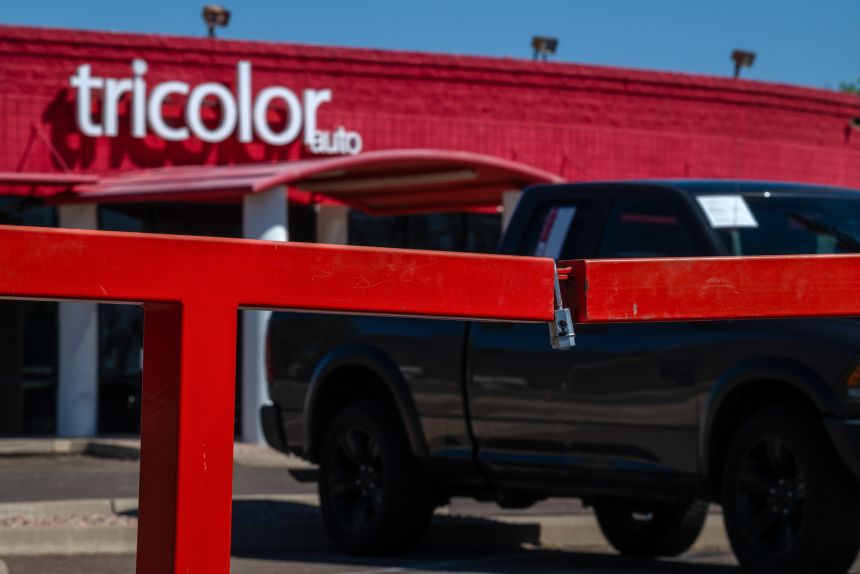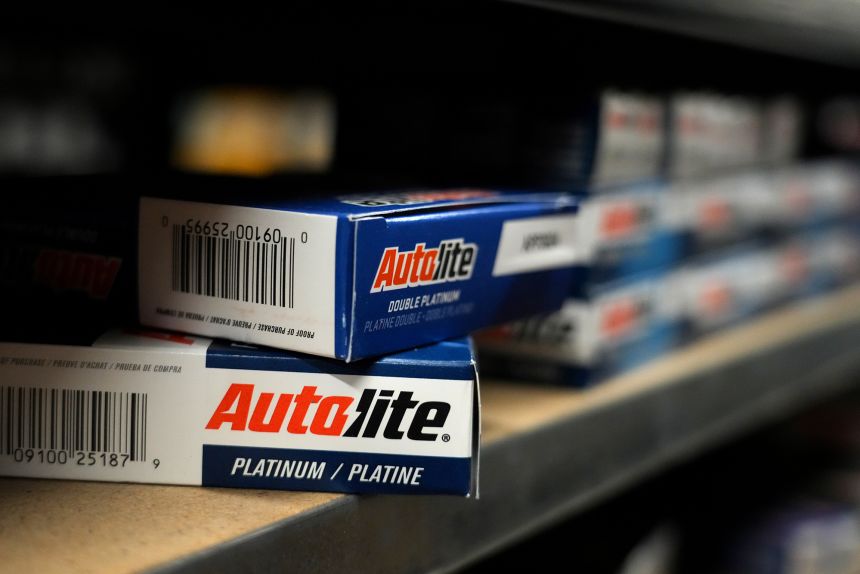Many Americans shrugged off the implosion of a pair of overleveraged Bear Stearns hedge funds in 2007. Stocks were at record highs, after all. But later it became apparent that those bankruptcies were among the first shoes to drop in an epic financial meltdown that would impact virtually all Americans.
Wall Street CEO Jamie Dimon rescued Bear Stearns when it nearly collapsed in 2008. Today, he cautions that trouble could be lurking again beneath the red-hot markets.
First, a subprime auto lender and dealer went bust last month in a crash fueled by plenty of risky loans and, allegedly, “pervasive fraud” of “extraordinary proportion,” a lawyer said in court.
Then First Brands, an auto-parts supplier built on complex and hidden loans, blinded Wall Street with a bankruptcy that financial firms are highly exposed to.
“My antenna goes up when things like that happen,” Dimon told analysts during a call on Tuesday. “And I probably shouldn’t say this, but when you see one cockroach, there are probably more… Everyone should be forewarned on this.”
It’s entirely possible the recent bankruptcies were fueled by company-specific problems, not systemic issues. And yet, as the 2008 financial crisis showed, trouble on Main Street can start in obscure corners of Wall Street.
Here’s what’s going on now.
Subprime loans were at the heart of Bear Stearns’ demise. The focus today is not on toxic mortgages but on subprime auto loans.
Tricolor Holdings, a Dallas-based auto lender specializing in loans to borrowers with weak credit scores, went bankrupt in September.

The bankruptcy shines a spotlight on how millions of Americans are hurting from the high cost of living and sluggish job market. Cars are more expensive than ever, and more and more people are falling behind on their car loans.
Even JPMorgan, which prides itself on what Dimon has dubbed a “fortress balance sheet,” suffered $170 million in losses linked to the Tricolor bankruptcy, according to the company’s earnings call on Tuesday.
Just a few weeks later, First Brands, a privately owned auto-parts supplier, filed for Chapter 11 bankruptcy. The heart of its demise appears to be an opaque borrowing scheme, which the Department of Justice has reportedly opened a criminal investigation into.
First Brands turned to the private credit market for help acquiring competitors. In a recent court filing, newly appointed directors of First Brands revealed as much as $2.3 billion in unpaid loans. They refer to this as “off-balance sheet financing” because the company borrowed money without officially disclosing it on the books.
Creditors allege First Brands got access to the funds by promising repayments when one of its customers paid their outstanding balance. This so-called third-party factoring is quite common. But creditors allege that First Brands essentially used the same invoice multiple times to access funds from private lenders unaware of the double dipping.

Eventually, lenders believed they were overleveraged and started asking questions.
The situation shares many similarities with investment bank Lehman Brothers, which went under during the Great Recession after it used an accounting scheme to conceal how debt-reliant it was.
First Brands declined to comment, instead referring CNN to a late September motion filed by Charles Moore, who became the company’s chief restructuring officer when it filed for bankruptcy. This week, Moore became interim CEO after Patrick James resigned from the position.
For the past few years, the economy has been on solid footing. Hiring has been strong, unemployment has stayed low, and consumers have kept on spending. But the tide is starting to turn, in part because President Donald Trump’s tariffs have put increasing stress has on American businesses.
Dimon warned analysts on Tuesday’s call that risky portfolios such as those as Tricolor and First Brands will only become more apparent at similarly structured companies in a downturn.
It could be coincidence that First Brands and Tricolor’s underlying financial issues are coming to light at almost the same time.
But as Warren Buffett famously said, “You don’t know who’s been swimming naked until the tide goes out.”
Source link
